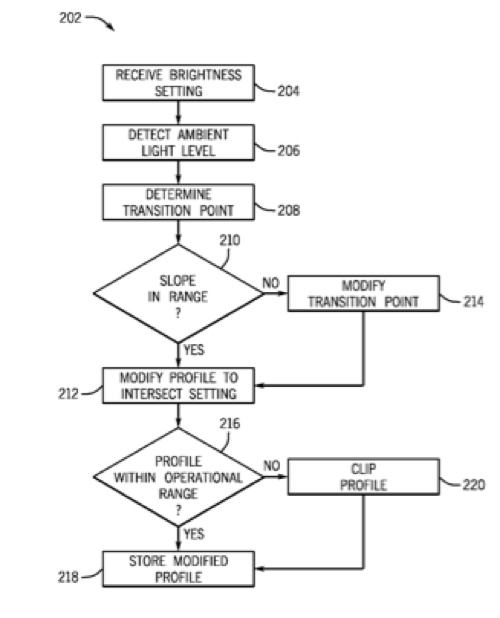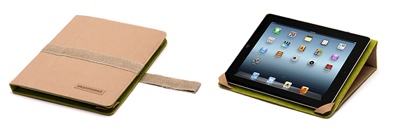A plethora of patents at the U.S. Patent & Trademark Office show that Apple is working on several methods of improving the displays across its product lines.
Patent number 20120019152 is for ambient light calibration for energy efficiency in display systems. It involves a method, system, and apparatus that can be used to operate a display device in an energy efficient manner. The energy efficient display device can effectively and efficiently compensate for changes in ambient light incident at a display screen of the display device using an internal ambient light sensor to provide control signals to a backlight driver. David W. Lum is the inventor.
Patent number 20120019152 involves a display brightness control based on ambient light angles. Methods and devices are provided for controlling the brightness of a display for an electronic device based on ambient light conditions. In one embodiment, an electronic device may employ one or more brightness adjustment profiles for changing the brightness of a display based on ambient light levels and/or the angle of incidence of one or more ambient light sources. In certain embodiments, one or more ambient light sensors may be designed to perceive the ambient light level differently based on the angle of incidence of a light source.
The perceived ambient light level may then be used to adjust the display brightness based on the one or more brightness adjustment profiles. In other embodiments, one or more ambient light sensors may be designed to detect the angle of incidence of an ambient light source. In these embodiments, the detected angle and the ambient light level may be used to adjust the display brightness. The inventors are Ulrich T. Barnhoefer and Wei Chen.
Patent number 20120019492 is for a display brightness control based on ambient light levels. Methods and devices are provided for controlling the brightness of a display for an electronic device based on ambient light conditions. In one embodiment, an electronic device may employ one or more brightness adjustment profiles for changing the brightness of a display based on the ambient light level.
The brightness adjustment profiles may include two or more sections, each corresponding to different ambient light levels, which may be adjusted independently of one another. The different sections may allow a user to customize brightness adjustments for different ambient light conditions. In certain embodiments, the slope and/or offset of a section may be adjusted in response to receiving a user input that changes the brightness setting for a certain ambient light level. The inventors are Ulrich T. Barnhoefer, Wei Chen and Bae Hopli.
Patent number 20120019493 involves display brightness control temporal response. Methods and devices are provided for controlling the brightness of a display for an electronic device based on ambient light conditions. In one embodiment, an electronic device may employ one or more brightness adjustment profiles that define response rates for changing brightness levels based on ambient light levels.
The response rates may vary depending on the magnitude and/or direction of change in the ambient light levels. In certain embodiments, the response rates may be designed to approximate the physical response of the human vision system. Further, in certain embodiments, noise reduction techniques may be employed by adjusting the response rates based on the magnitude of the change in the ambient light level and/or based on whether the display is operating at steady state or executing a brightness adjustment. The inventors are Ulrich T. Barnhoefer and Wei Chen.
Patent number 20120019494 is for an alignment factor for ambient lighting calibration. It involves a method, system, and apparatus that can be used to operate a display device in an energy efficient manner. The energy efficient display device can effectively and efficiently compensate for changes in ambient light incident at a display screen of the display device using an internal ambient light sensor to provide control signals to a backlight driver. Data from the ambient light sensor can be at least partially corrected to correspond more closely to a response of a Lambertian responsive light sensor. The inventors are David W. Lum, Ulrich Barnhoefer, Nyok Khiam Lam and Paolo Sacchetto.





